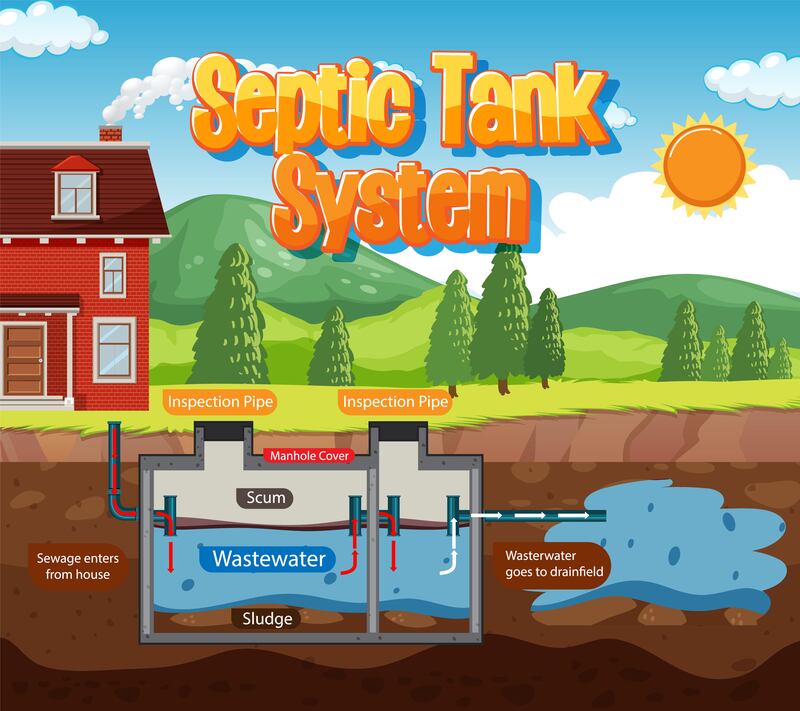
Septic tanks are a common wastewater treatment solution for homes and properties located beyond the reach of municipal sewer systems. While they offer a decentralized and cost-effective way to manage household sewage, questions arise regarding their environmental impact. Are septic tanks truly environmentally friendly, or do they pose risks to ecosystems and water quality? Let's delve into the topic to understand the implications of septic systems on the environment.
Before assessing their environmental impact, it's essential to grasp how septic tanks function. These underground tanks collect and treat household wastewater, including toilet waste, bathwater, and kitchen effluent. Inside the tank, solid waste settles at the bottom, forming sludge, while lighter materials like grease and oils float to the top as scum. Bacteria and natural processes break down organic matter, partially treating the wastewater before it leaches into the surrounding soil through a drain field or leach field.
Septic tanks offer several environmental benefits, particularly in rural or remote areas where centralized sewer systems are impractical. By treating wastewater on-site, septic systems reduce the need for extensive sewer infrastructure and the associated energy consumption and environmental disturbance during septic tank installation and maintenance. Additionally, properly maintained septic tanks can help replenish groundwater by filtering and purifying wastewater before it re-enters the soil.
Despite their benefits, septic tanks can pose environmental risks if not properly managed. One primary concern is groundwater contamination due to leaks, overflows, or system failures. If untreated sewage seeps into the groundwater, it can introduce harmful pathogens, nutrients, and pollutants, jeopardizing water quality and public health. Moreover, excessive nutrient runoff from poorly maintained septic systems can contribute to algal blooms, oxygen depletion, and ecosystem degradation in nearby water bodies.
The environmental impact of septic tanks largely depends on maintenance practices and adherence to regulations. Regular septic tank cleaning and pumping are essential to prevent solids from accumulating and clogging the system, reducing the risk of backups and groundwater contamination. Hiring a reputable plumber from Rooter Septic Services for routine inspections, septic tank repairs, and maintenance ensures that the system operates efficiently and minimizes environmental risks.
To maximize the environmental sustainability of septic systems, homeowners should follow these best practices:
While septic tanks offer decentralized wastewater treatment solutions, their environmental impact hinges on proper maintenance and management. With regular septic tank pumping, cleaning, and maintenance by reputable professionals, these systems can minimize pollution, protect groundwater quality, and contribute to environmental sustainability. By adopting responsible usage practices and adhering to regulations, homeowners can ensure that their septic systems remain environmentally friendly and effective for years to come.